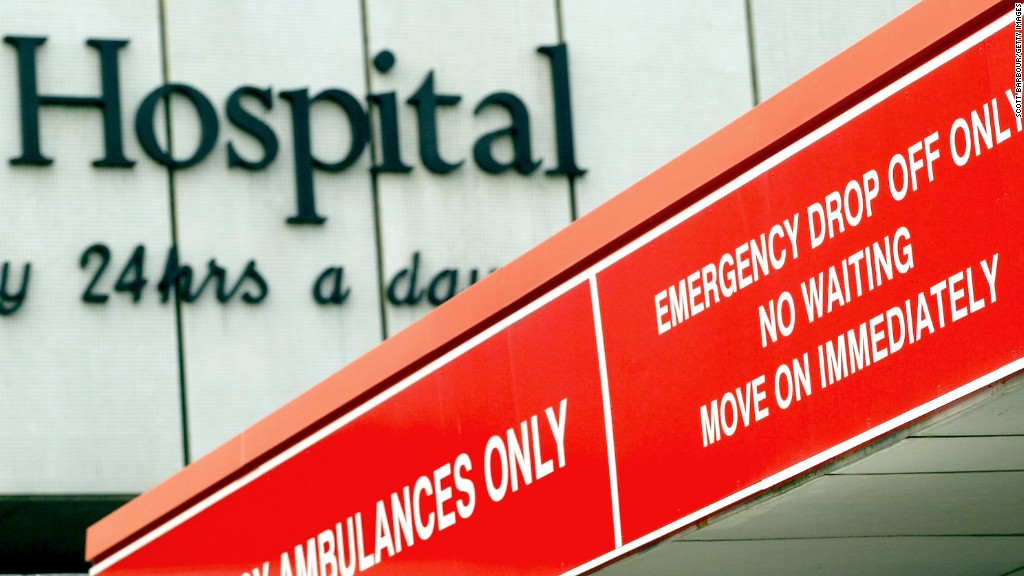
It's not a secret that our country is deep in the throes of a healthcare crisis. But while a growing number of Americans are foregoing health coverage because of the costs involved, even those who have insurance aren't necessarily in great shape, and a big part of that boils down to a glaring lack of education.
According to the Kaiser Family Foundation, the majority of non-elderly working Americans have the option to participate in an employer-sponsored health insurance plan. Yet many workers who sign up for health coverage through work don't really know what they're getting into.
According to a study by Liazon, although 83% of employees care a lot about their health coverage, only 52% really understand their benefits. And a big reason has to do with the fact that many of us aren't willing to put in the time. Specifically, 86% of workers spend less than two hours reviewing their benefits, and that's not a whole lot in the grand scheme of one's wallet and one's health.
Knowledge is power
Not only is it important to understand what your health plan covers, but it's also crucial to get a grip on your costs. For example, the amount you pay for health insurance each month isn't necessarily your plan's going rate. If you work for a decent-sized company, there's a good chance your employer subsidizes some of your costs and simply charges you the difference.
Why does that matter? Let's say you lose your job, or are forced to leave without another one in sight. If you want to retain your health coverage under your current plan, you'll need to sign up for COBRA, at which point you'll be responsible for your premiums in their entirety. If you're used to paying, say, $200 a month for health insurance, but come to realize after the fact that your plan actually costs $600 a month, that's a pretty sizable gap to bridge.
Here's something else to consider. If your employer offers multiple health plans, you may be drawn to the one with the lowest monthly premium. But that could end up costing you more money in the long run, especially if you get sick often or encounter a costly medical issue.
When it comes to health insurance, you typically get what you pay for, so that plan with a lower premium might offer less comprehensive coverage than a costlier plan. You might also be subject to a much higher out-of-pocket deductible you'll need to meet before your insurer starts paying for your care, not to mention heftier copays. That's why it's not always best to opt for the cheapest plan available.
Say you're given the choice between a plan with a $200 monthly premium and $10,000 deductible, versus a plan with a $500 monthly premium and a $1,000 deductible. At first glance, the $200-a-month plan might seem like a no-brainer, but what happens if you get injured and incur a $10,000 hospital bill? In that unfortunate situation, you'll be on the hook for that $10,000, and assuming that's the only time you use your insurance during the year, you'll wind up spending $12,400 in total. On the other hand, if you take the pricier plan, but incur that same expense, it'll cost you just $7,000 for the year, assuming that's the one time you need to utilize your coverage.
Now this isn't to say that the most expensive health plan your company offers is the right one to choose, either. Rather, you should spend a decent amount of time reviewing your plan options, understanding your coverage, and running some numbers to arrive at the most cost-effective decision based on your medical history.
Related links:
• Motley Fool Issues Rare Triple-Buy Alert
• This Stock Could Be Like Buying Amazon in 1997
• 7 of 8 People Are Clueless About This Trillion-Dollar Market
Along these lines, if you feel you're ill-equipped to choose a health plan on your own, don't hesitate to ask your employer for some guidance. Getting answers to your questions might help ensure that you're adequately covered, and that could be instrumental in helping you avoid medical debt down the line. More than 25% of U.S. adults struggle to pay their medical bills each year, and that includes folks with coverage. Getting your facts straight on the health insurance front could save you a lot of money and aggravation in the long run.
